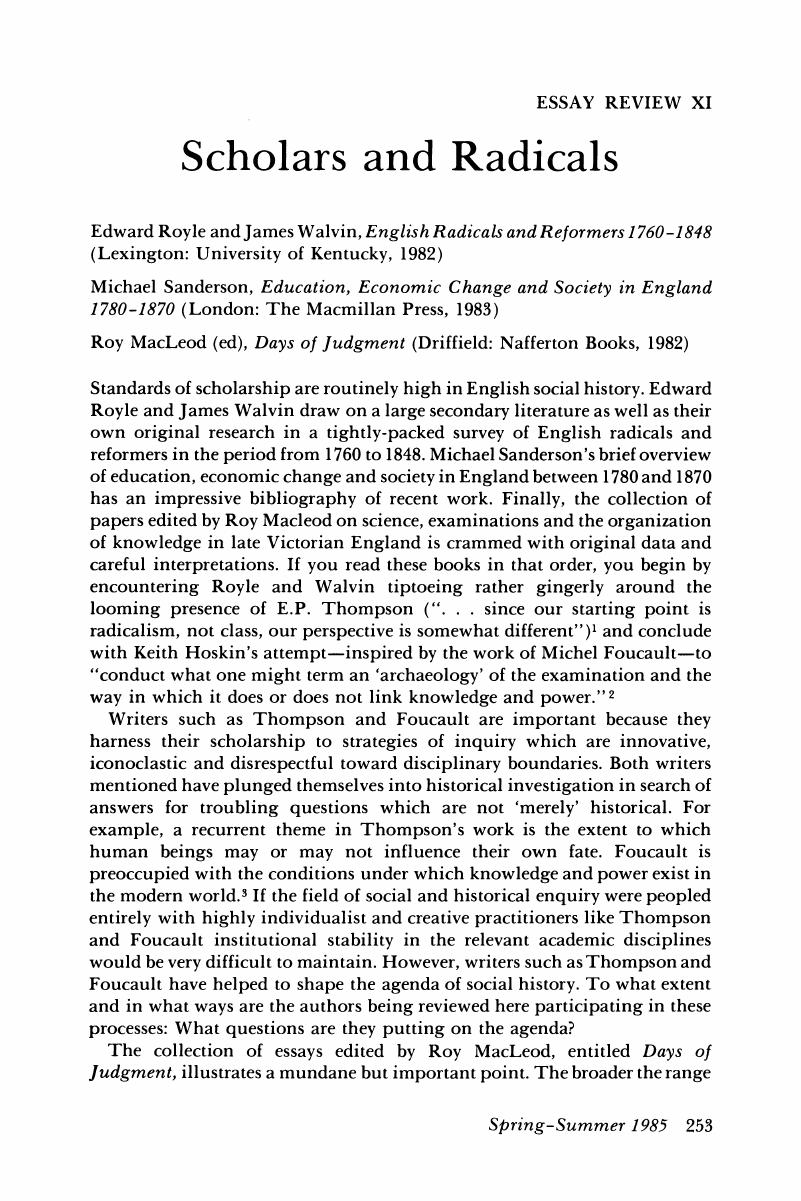No CrossRef data available.
Published online by Cambridge University Press: 24 February 2017

1. Royle, and Walvin, , English Radicals, p. 10.Google Scholar
2. Macleod, , Days of Judgment, p. 215.Google Scholar
3. See, for example, Foucault, M., Discipline and Punish. The Birth of the Prison (Harmondsworth, 1979)Google Scholar
4. MacLeod, , p. 4.Google Scholar
5. Sanderson, , Education, Economic Change and Society, p. 9.Google Scholar
6. Ibid., p. 24, p. 59.Google Scholar
7. Moore, D.C., “Concession or cure: the sociological premises of the First Reform Act,” Historical Journal, 9 (1966):39–59; Storch, R.D., “The plague of the blue locusts: police reform and popular resistance in northern England, 1840–57,” International Review of Social History, 20 (1975):61–90; Laqueur, T.W., Religion and Respectability. Sunday Schools and Working-Class Culture (New Haven, 1976); Thackray, A., “Natural knowledge in cultural context: the Manchester model,” American Historical Review, 79 (1974):672–709; Donajgrodski, A. (ed), Social Control in Nineteenth-Century Britain (London, 1977).CrossRefGoogle Scholar
8. Royle, and Walvin, , p. 9.Google Scholar
9. Ibid., p. 9.Google Scholar
10. Ibid., pp. 9–10.Google Scholar
11. Ibid., p. 10.Google Scholar
12. Ibid., p. 190.Google Scholar
13. Ibid., p. 10.Google Scholar
14. MacLeod, , p. 136.Google Scholar
15. Rothblatt, S., “The student sub-culture and the examination system in early 19th-century Oxbridge,” in Stone, L. (ed), The University of Society. Vol. One (Princeton, 1975), pp. 247–303.Google Scholar
16. Bernstein, B., “On the classification and framing of educational knowledge,” in Class, Codes and Control, Vol. One (London, 1973), pp. 227–56; Bourdieu, P. and Passeron, J-C, Reproduction in Education, Society and Culture (London, 1977); Sennett, R., The Decline of Public Man (Cambridge, 1977); Ringer, F., Education and Society in Modern Europe (Bloomington, IN, 1979); Durkheim, E., The Evolution of Educational Thought (London, 1977).Google Scholar